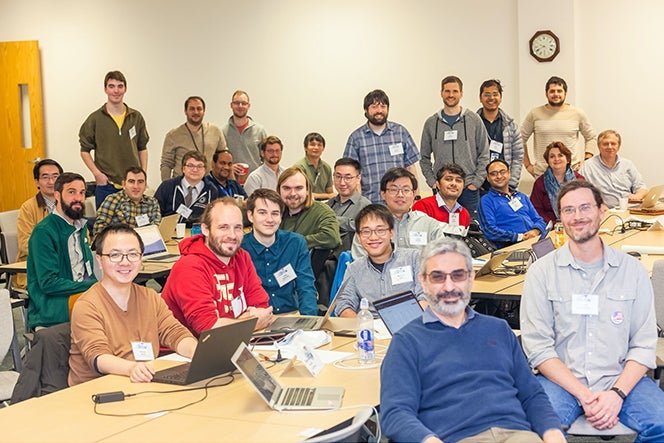
Miu (Andy) Lun Lau, a Computing Ph.D. student in the Computational Science and Engineering emphasis, and his team, “Palpatine”, won the Department of Energy’s Nuclear Physics Artificial Intelligence Hackathon at the A.I. for Nuclear Physics workshop on Mar 5, 2020. The workshop was hosted at the Thomas Jefferson National Accelerator Laboratory from March 4th through the 6th, 2020. The Hackathon was sponsored by the Jefferson Lab in conjunction with the University of Virginia’s School of Data Science.
The purpose of the Hack-A-Thon is to address a common but important application of A.I. in experimental nuclear physics; tracking charged particles through magnetic fields, which is often the most time-intensive task in reconstruction algorithms and an excellent example of the power of A.I. in a real-world application. The participants work in teams with less than or equal to 4 members to solve a set of challenge problems. They started from understanding the infrastructure of large data sets of experimental results, used Neural Network architecture to predict single variable, multi-variable properties of particle events for both single track or multiple tracks, in an environment with or without detector noise. Andy had this to say about his experience at the hackathon last week: “The hackathon was an amazing way to experience positive competitions with students with similar interests from other universities. Some challenges we overcame as a team include navigating an extremely large dataset and outlier filtering. Despite these difficulties, it was a valuable experience in gaining more knowledge and connections with scientists.”
There are 8 teams of faculty, scientists and students competing this hackathon. The average overall score is around 79. The “Palpatine” team consists of 4 students, including Andy, and ranks 1st place with an overall score of 186.78794411714. The team “Oxpecker” ranks 2nd place with an overall score of 152.85838412141.